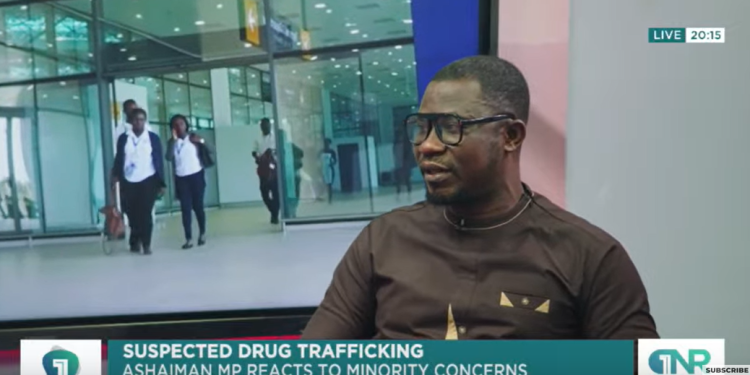The credibility of Ghana has been drawn into question following allegations
made by Rev. John Ntim Fordjour, the Ranking Member of the Defence and Interior
Committee. His claims of drug trafficking and money laundering involving two
flights at the Kotoka International Airport (KIA) have sparked widespread
debate, with concerns raised about their potential impact on the nation’s
integrity.
Ernest Henry Norgbey, the Member of Parliament for Ashaiman and a member of
the committee, has expressed strong disapproval of Fordjour’s actions. He
argues that making unsubstantiated allegations on such a sensitive matter could
severely damage the country’s international standing. Speaking on Channel One
Newsroom, Norgbey emphasized the need for responsible communication, especially
on national security matters.
According to him, Fordjour’s approach was inappropriate, as he chose to
publicize the issue through the media instead of following internal procedures
within the committee. Norgbey questioned the decision, pointing out that if the
allegations were unfounded, they could create unnecessary panic and tarnish the
country’s reputation.
The Ashaiman MP further stated that matters of this nature require careful
handling. He noted that there are established channels for addressing security
concerns, and bypassing them for media attention is not the best approach. His
remarks have added to the ongoing debate about how sensitive issues should be
managed to avoid negative consequences for the nation.
The controversy surrounding the KIA allegations has raised concerns about
how Ghana’s security agencies handle information related to drug trafficking
and financial crimes. The allegations have not been officially substantiated,
yet they have already drawn significant attention both locally and
internationally. This has led to growing calls for a thorough investigation
into the matter to either confirm or refute the claims.
Meanwhile, discussions around the issue have sparked broader conversations
on media responsibility and political accountability. Some critics argue that
while Fordjour may have had genuine concerns, his decision to go public without
concrete evidence was ill-advised. Others, however, believe that raising such
issues in the public domain helps to promote transparency and hold authorities
accountable.
As the debate continues, there is increasing pressure on security agencies
to provide clarity on the allegations and assure the public that Ghana’s
borders remain secure. The situation also highlights the need for a careful
balance between ensuring national security and maintaining the country’s
reputation on the global stage.
While investigations may take time, stakeholders are urging political
leaders and security agencies to work together in addressing the matter
responsibly. The outcome of these discussions and investigations will be
crucial in determining the next steps and ensuring that Ghana’s integrity
remains intact amidst these serious allegations.



